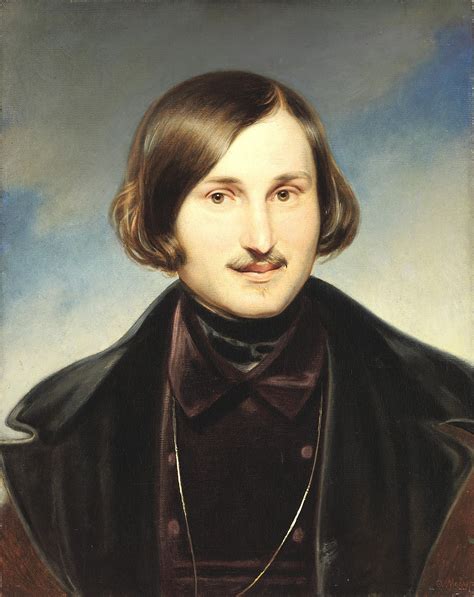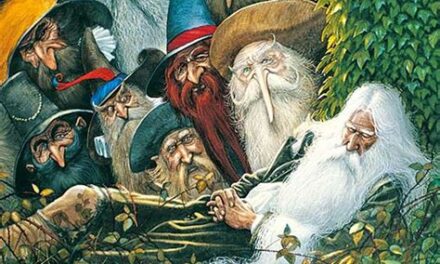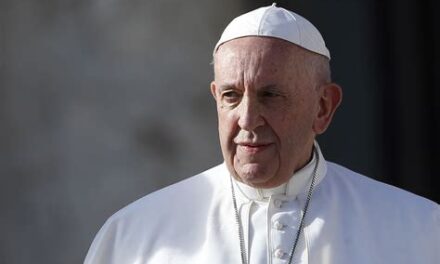Unlike many men today, whether real or imagined, Taras Bulba, the character who gives his name to Nikolai Gogol’s novel Taras Bulba, knows exactly who he is and what he is supposed to do with his life.
Bulba, who “saw himself as the lawful protector of the Russian Orthodox faith,” lives by a simple rule. A Cossock, he is ready to fight whenever anyone fails to respect a Cossock elder and his ancestral laws or the Russian Orthodox faith. He also is always ready to take up the defense of Christendom against the Turks, or Tatars.
Bulba is a more complicated character than has been depicted in films of the novel. Bulba, Gogol tells us, is a man of his age. His character, therefore, has been formed by the turmoil of Russia in the fifteenth century:
“… when the flames of war gripped the ancient peaceful Slavic spirit, and Cossackry—that wide, ranging sweep of Russian character—was introduced ….” *
During these tumultuous times, Gogol tells us, Cossacks, and men like Bulba, took up the fight against non-Christian invaders and so saved Europe from them. Later, and a subject of the novel, they took up the fight against the Polish, who had taken control of their land.
Bulba seems to be an uneducated man, but he can refer to the Roman poet Horace, leading his eldest son, Ostrap, to say:
“Ha, that’s my father for you! … There’s nothing the old scoundrel doesn’t know, and yet he pretends not to.”
And while he disparages the learning his two sons acquire at seminary in Kiev—he spiritedly tells his sons, “I spit on it all!” —he still sends them to seminary for an education before he sends them to be educated as Cossack warriors.
The education he seeks most for his sons, however, is with the Cossacks: In first living with Cossacks at what is called the Zaporozhian Sech, and then in battle, where young Cossack warriors are truly formed.
Cossacks don’t like to train and so outside of battle they spend their time carousing and feasting at the Sech. Admission to the Sech has one requirement, the correct answers to questions by the head Cossack, the Ataman, in a short “initiation ceremony”:
“Greetings! So you believe in Christ?” the Ataman would ask.
“I do!”
“How about the Holy Trinity?”
“I do!”
“So let’s see you cross yourself!”
The new arrival would cross himself.
“Well then,” the Ataman would say, “go join one of our companies.”
Although they believe in Christ and the Trinity and attend liturgy, the free Cossacks ignore other rules of the Church:
“The whole Sech was of one faith and prepared to defend this faith to the last drop of blood, though it disregarded all fasting periods and temperance.”
While the novel primarily concerns the workings of Bulba’s mind, heart, and soul as a Cossack, it also is about his two sons, Ostrap and Andri, a type of Cain and Abel.
Ostrap, the older of the two, fights with his father as a true Cossack when he mocks his sons, which gains the admiration of his father. After he is captured in battle, Ostrap is executed by the Polish while his father secretly watches. Bulba reveals his presence in the crowd when Ostrap calls out to him, reminiscent of how Our Lord Jesus Christ called out to the Father while on the Cross.
The death of his loyal son, a true Cossack, enrages Bulba and leads him back to battle and his own eventual execution at the hands of the Polish.
While not the actual murderer of his brother, Bulba’s younger son, Andri, betrays his father and brother for the love of a Polish woman to fight on the side of the Polish and kill his Cossack brothers. Deeply wounded by this betrayal, Bulba kills his son when given the opportunity during battle.
Ostrap pities his brother and wishes to bury him, but Bulba says, “Let the Poles bury him.” He stands before the corpse of his son and wonders whether to leave his body for wolves or to honor him as a defeated warrior. He must return to the battle before making his decision.
Clearly biblical, Gogol’s novel also has the qualities of the greatest Greek and Shakespearean tragedies. It is also Homeric, which is best seen in Bulba’s rousing speech about the Cossack brotherhood and the Russian soul before the battle during which he will kill his own son, a traitor.
While this small quotation does not capture the majesty of this speech, it does capture the essence of what Bulba says:
“No, brothers! To love as the Russian soul can love, not with the mind or whatever but with everything that God has given us, with everything that is inside us—no, nobody else can love like that!”
While some might find it tempting to think that the novel can teach us much about the mind of the Islamic terrorist today, this is only partially true. Bulba and his Cossacks, while deeply flawed, are honorable and noble in ways the Islamic terrorist never can be.
And while this novel teaches us about the Russian spirit and soul, as well as the Ukrainian, and sheds light on the struggle between the Russians and Ukrainians over Ukraine today, the most important lesson this novel teaches is in how it depicts the undaunted spirit that is required to defeat an enemy seeking to conquer and subjugate you.
The hard truth Gogol reveals, a truth that goes against much of the thinking in our nation today, is that in our own fight against Islamic terrorists we need an army of Christian men with the single-mindedness of a Taras Bulba, but men who are willing to make the greatest of sacrifices while disciplined in living as Christians in all aspects of life.
* All quotations are from Nikolai Gogol’s Taras Bulba, translated by Peter Constantine and published in paperback by the Modern Library, 2004.















I only came to say – that this article is a
written and self indulgent reading. Thank you to it.
I’ve recently discovered another great piece at https://www.facebook.com/essayprocom/reviews/. Seems like I’m being exceptionally
lucky this week. Thanks a lot for your work, keep writing.
You’re too good at it to avoid.